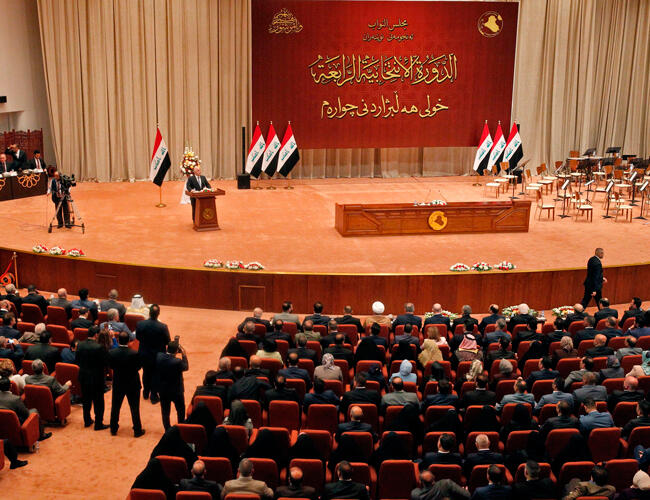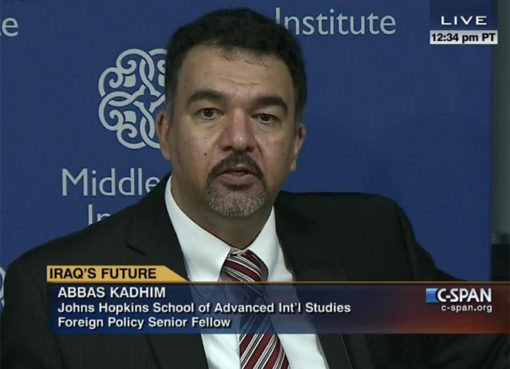This paper assesses the ongoing constitutional battle over the devolution of powers in Iraq and looks at the possibility of a long-term solution.
The issue of federalism in Iraq has been hugely disruptive since the establishment of the post-2003 state. Although the 2005 constitution backed a devolution of powers to regions and provinces, flaws in the document and the need for supporting legislation have allowed successive governments in Baghdad to resist limits on the power of the federal government.
Efforts to reach a formal compromise between Baghdad and the Kurdistan Regional Government have failed, however, this paper argues that the status quo that has emerged as a result of this ongoing dispute may in fact offer a long-term solution.
Summary
- The implementation of federalism in Iraq is a divisive political issue that has coloured relations between the central government and both the Kurdistan Regional Government (KRG) and Iraq’s individual provinces. The form and substance of power-sharing arrangements, and the extent to which sovereign authority should be devolved, have been in constant dispute since the establishment of the post-2003 state.
- Efforts to implement decentralization measures mandated in the 2005 constitution have been stymied by ambiguities in the document, the need for enabling legislation, and the reluctance of successive federal governments to dilute their power at the expense of the Kurdistan region and the provinces. Attempts to reach a formal agreement on power-sharing between the federal government and the KRG have been further undermined by Erbil’s insistence on a maximalist interpretation of the constitution, which Baghdad regards as an existential threat to its authority and to the territorial integrity of the Iraqi state.
- Kurdish resolve to preserve the exceptionalism that the KRG has carved out since 2003 is matched on the federal government side by a determination not to surrender the sovereign authority that it presently enjoys, and – by extension – not to implement the constitution as it is written in any part of Iraq. As the balance of power has shifted over time in favour of the federal government, it has become less willing to compromise or to permit decentralization to the Iraqi provinces under its control. This ensuing impasse has undermined governance nationally, and it has imposed punitive financial and administrative costs at all levels of government.
- The key to a long-term resolution of the federalism question lies in finding a compromise formula that would satisfy the minimum requirements of both the federal government and the KRG, and open the door to decentralization in the rest of Iraq.
- One option is Kurdish independence, but this faces domestic and regional obstacles, including the KRG’s fiscal fragility.
- A second, more propitious option, would be to codify the ad hoc – but at this point, durable – status-quo arrangements that have emerged as a result of the impasse over power-sharing, and using them as the foundations for a robust power-sharing system. This solution would involve moving away from a zero-sum mindset on both sides, and instead identifying areas of mutual interest and the mechanisms that have facilitated co-existence over the past 17 years. These elements could then be used as the building blocks for a lasting power-sharing formula that would also encourage greater decentralization of authority to Iraqi provinces as well.
(*) Senior Director, Boston Consulting Group’s Center for Energy Impact
Download paper as PDF file








Comment here